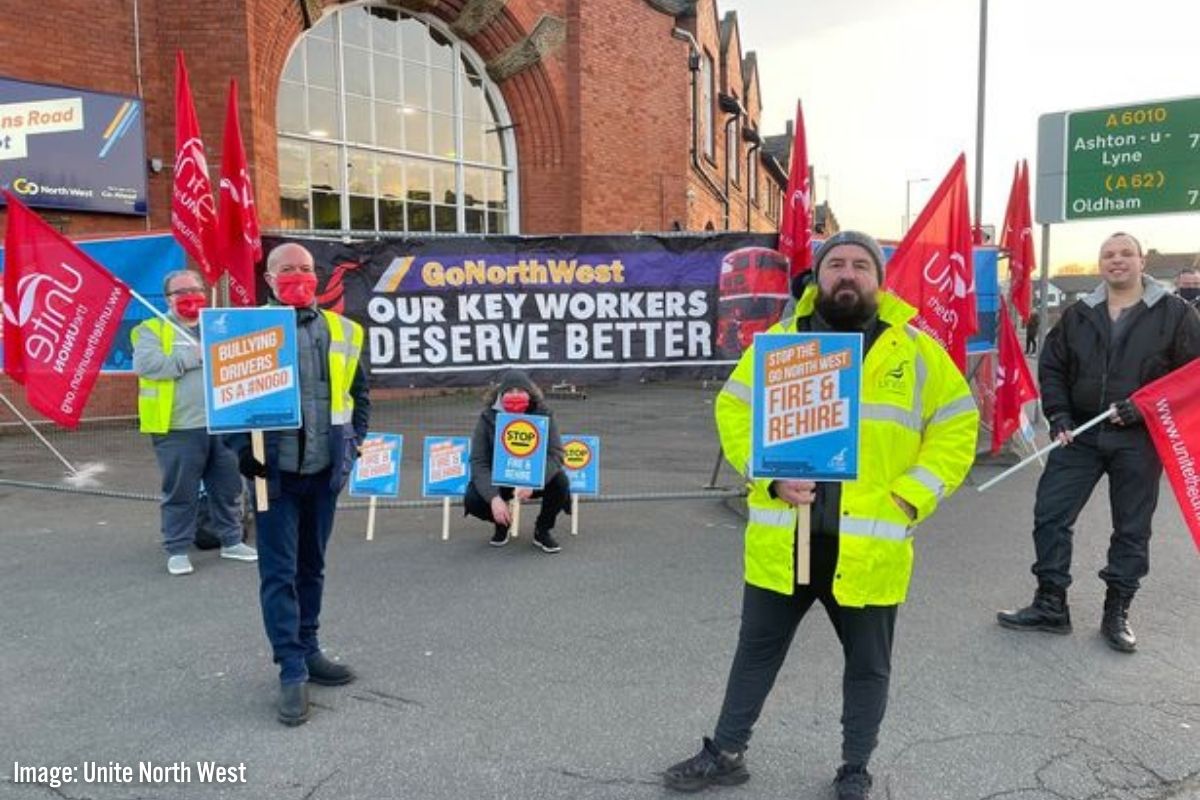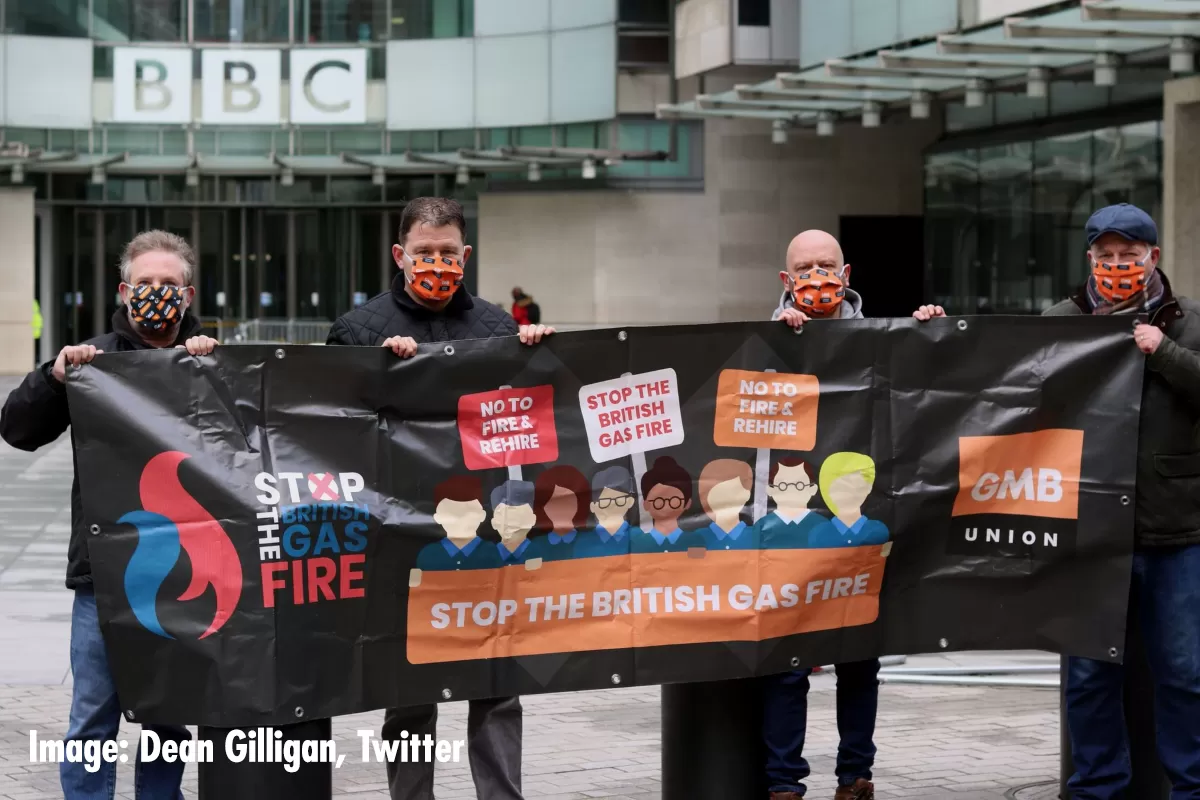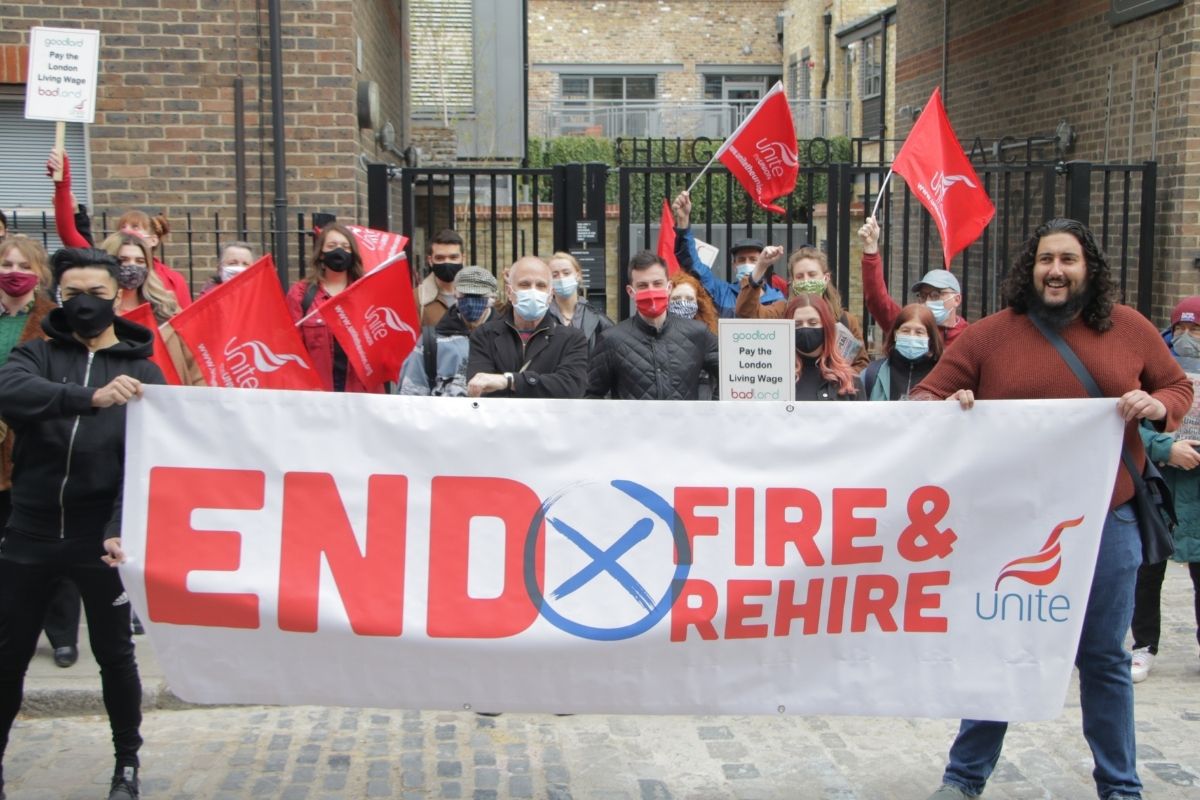Union activists from across industry are meeting in Liverpool this week for the Unite policy conference. One of the key items on the agenda is the fight against the brutal fire-and-rehire tactics of the bosses. Workers need a militant response.
Fire and rehire has become the watchword for an all-out offensive by the bosses’ against workers. This heinous practice consists of employers telling their workers they will be dismissed if they do not sign on to new contracts, with significantly worse pay, terms, and conditions.
This is not a new phenomenon, however; it has been going on for years. In 2019, for example, Asda threatened 12,000 staff with a similar measure, in order to drive down their pay.
In fact, this is nothing more than the old strategy of bosses’ lockouts, dressed up in new attire for modern times.
Read the special conference bulletin produced by Unite Marxists – supporters of the International Marxist Tendency within the union.
Pushing for profits
The economic fallout of the coronavirus pandemic has prompted a huge surge in such attacks. Employers whose profits have been badly hit have used it to make their workers shoulder the costs.
Even businesses who continue to function profitably, however, have greedily seized on the opportunity presented by the widespread insecurity of the pandemic to cut costs and raise profits.
Fire and rehire has been most prevalent in sectors hit hardest by the coronavirus crisis – especially hospitality, where high turnover, precarity, and low union density undermine workers’ ability to stage an industrial response.
Nevertheless, as the case of Tower Hamlets council shows, no group of workers is safe – even those in the public sector.
Fightback

Every action has its reaction, however. These assaults have provoked a wave of strikes and industrial action in response.
Many workers have decided that they can’t – and won’t – accept another blow to their standard of living, which has already been perilously degraded over the last decade. Instead, they are getting organised and fighting back.
We have seen victorious strikes take place among British Airways cargo handlers, Go North West bus drivers in Manchester, Metroline buses in London, refuse workers for Thurrock Council, and at SPS Technologies in Leicester.
And in Northamptonshire recently, Weetabix workers – subject to whopping pay cuts of £5000 per year – have begun their strike, with new Unite general secretary Sharon Graham personally visiting them on the picket line to offer her support.
Militancy pays

While only a minority of strikes have been able to overcome the attacks of the employers so far, these battles nevertheless provide important lessons in how to fight back against fire and rehire and defeat it for good.
On the positive side, victories like those at BA and Go North West show that militancy pays.
It is vital that workplaces are organised, and that trade unions give their full support to workers in preparing for strike action. But we also need a militant, proactive strategy from across the trade union movement to tie together these struggles and push them to victory.
What is holding us back in the fight against fire and rehire is that each struggle is being fought in isolation, allowing employers to pick off different groups of workers one by one.
The Go North West Manchester bus strike, for example, was a welcome victory. However, the drivers were reportedly asked not to speak to workers at other companies’ depots during the strike, for fear of falling foul of Tory anti-trade union laws.
Unions must be willing to act decisively, and escalate the struggle where necessary.
British Gas workers in GMB ultimately went down to defeat in their battle against Centrica, for example, despite 43 days of heroic action.
If we had seen coordinated strike action with British Gas admin staff in Unison, both groups of workers could have come out with decisive victories under their belts. As it stands, this was a big missed opportunity.
Political struggle
If we hope to win the battles ahead, our unions must go beyond the confines of the law and the limits set by the state, otherwise we will constantly be fighting the bosses with one hand tied behind our back.
This is why the struggle against fire and rehire is both industrial and political.
Unite has launched a national campaign for legislation to ban fire and rehire, with backing from Labour MPs such as Barry Gardiner.
On my way to Manchester to campaign with local MPs on the #StopFireAndRehire National Tour.
Great to see so many colleagues standing up against bullying in the workplace. pic.twitter.com/HfvPgql1JR— Barry Gardiner (@BarryGardiner) October 11, 2021
Ultimately, the law is written by the capitalists and their lackeys at the top of the state precisely with the intention of weakening industrial action.
This campaign should be supported with action as well as words. The only way such legislation will be passed is by mobilising all our forces in unified industrial action, including strikes.
In this, we will face opposition from both the Tories and the Blairites in the Labour Party – especially as the practice is being used by right-wing Labour councils against council workers!
Socialist programme
Ultimately, the trade union movement must be prepared to bring its ranks into a decisive struggle against the government and the whole rotten system that allows ‘fire-and-rehire’ tactics to be used in the first place.
This means ensuring the whole labour movement is united behind a bold socialist programme based on nationalising industry under workers’ control – planning the economy for need, and not profit.
Only by ending the profit system and taking industry out of private hands can we end this brutal race to the bottom that the capitalists are imposing on the working class.






